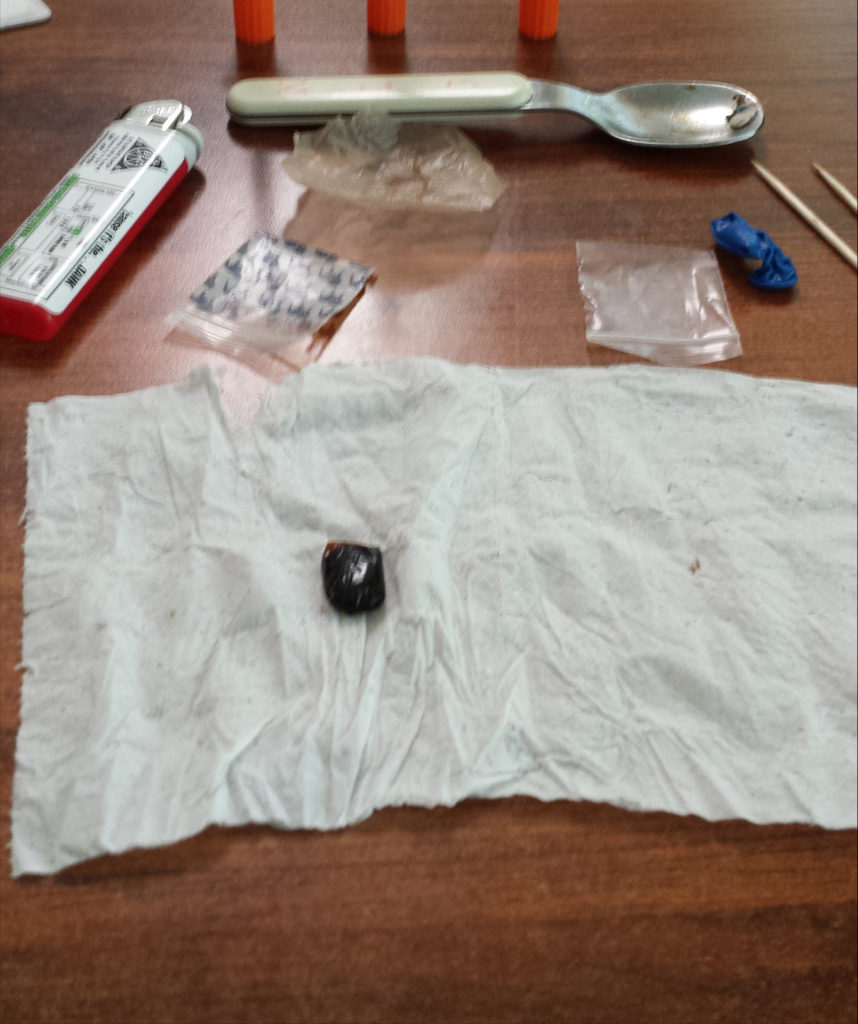Addicted To Heroin?
Heroin is an illegal, highly addictive drug in the opiate family. If you are addicted to heroin and are ready for help, you have come to the right place. At Bay Area Recovery Centers we have seen a noticeable increase in heroin addiction and have spent the last three decades helping heroin users free themselves from their addiction.
Our program includes a medically assisted detox, inpatient programs, and outpatient we provide a full service treatment program.
The heroin rehab industry has grown over the last decade and has become worth billions of dollars. From medically assisted treatment – MAT (long term use of Suboxone or methadone) to vacation rehabs, it has become very tedious navigating through the web of rehabs and finding a rehab that actually treats the addiction, and equips the patient with the tools necessary to leave rehab and achieve lifelong sobriety.
Heroin Addiction is a Three Fold Disease. Physical, Mental & Spiritual
The facts have led us to believe addiction is a chronic disease and the physical aspect of detox is only one symptom of many. This fact has been backed up by the research at The American Society of Addiction Medicine and the National Council on Alcoholism and Drug Dependance who have defined alcoholism and addiction as a chronic disease. A threefold illness that affects the mental, physical, and spiritual wellbeing of the patient.
How does heroin detox work?
The first step of our heroin treatment program starts by removing the patient from their environment where the addiction thrives. The hardest part of this process for most heroin addicts is physical withdrawals and detox. This can be a scary thought for most addicts. Withdrawing from heroin is not easy and it comes with mental and physical pain. To help the patient safely detox, our treatment program offers a medically assisted detox for all patients with an opiate addiction.
What are the withdrawal symptoms of heroin?
- Cold sweats
- Difficulty sitting still/restlessness
- Dilated pupils
- Nausea
- Vomiting or dry heaves
- Decreased appetite
- Anxiety or panic attacks
- Trouble with sleep or sleeplessness
- Diarrhea
- Flu-like symptoms
- Skin crawls or goose flesh
- Muscle aches
- Joint pain
- Increased blood pressure and or heart rate
- Heavy breathing
What is a medically assisted detox for heroin?
The focus of a medically assisted detox is to alleviate the physical addiction to heroin as safely as possible. Our goal is to remove the substance entirely from the client’s system, taking away the physical dependance of the drug. Our medically assisted detox is managed by our medical staff that includes a licensed doctor and nurses. First, our doctor performs a thorough mental and physical assessment of the client and prescribes the proper medications to treat the client’s withdrawal symptoms. From this point forward the client’s vital stability and symptom reduction is closely monitored by our nursing and direct care technicians.
To treat heroin withdrawal symptoms, we use a Suboxone taper withdrawal protocol to alleviate the worst of the physical symptoms. As clients conclude the detox phase of treatment, they can expect to experience minimal, if any, remaining physical withdrawal symptoms. This allows the clients to move onto the next phase of inpatient treatment, which focuses on the mental addiction of their illness.
More details are available by calling our heroin treatment experts. Our team has years of experience dealing with heroin addiction and what it takes to achieve sobriety, our team wants you to be successful and achieve recovery from heroin addiction. Starting with a caring, knowledgeable team of addiction treatment specialists, who will help you figure out the best timeline, verify your insurance or see which one of our rehabilitation facilities is nearest you. We have locations in Houston, Texas and surrounding suburbs including Clear Lake, Pasadena, Webster, and Dickinson, Texas. This is free of charge and you will get the answers you have been looking for.
Do you need to go to inpatient rehab for heroin addition?
Once detox has completed, we recommend every patient enter a 30,60 or 90-day addiction treatment program. Intensive inpatient rehab is necessary for success because the detox phase only alleviates the physical ailments of heroin addiction. Without further treatment, the detox phase is a waste of time if the underlying reasons for using heroin are not treated. The goal of residential inpatient is to treat the root cause of heroin addiction through education and therapy. Healing the mental and spiritual aspects of the person.
Inpatient Rehab Is A Time To Heal and Grow. Not a Vacation.
Many inpatient rehabs simply give the patient a reboot and escape from reality. Offering activities to keep their mind occupied and away from reality. We believe inpatient rehab is a time to identify and work on the underlying causes of the addiction. Although we have comforting facilities with activities to keep our patients occupied, majority of their time is spent preparing for release back into society. This is realized through education, community, and hard work. Getting down to the root cause of the addiction and working with heroin addiction professionals who have helped many men and women free themselves from the addiction of heroin. From the intimate one on one work to group sessions and stories shared by sober heroin addicts. Our clients learn from the best and graduate our treatment program with a clear understanding of what it takes to get sober and stay sober. Ensuring rehab is effective and the foundation of lifelong sobriety.
Our heroin specific treatment program was created with decades of experience and professionals who have decades of sobriety and want to see every patient become a successful member of their family and community. Our heroin treatment services include and are not limited to:
- 30 / 60 to 90 Day Residential Rehab
- Group Therapy
- Cognitive Therapy & Intervention
- Behavioral Therapy
- Learning Coping Mechanisms
- Chemical dependency education and interactive group counseling sessions
- Individual counseling sessions
- Personal social adjustment training
- Vocational adjustment and employment readiness training; job placement services
- Twelve Step support group orientation
- Relapse prevention
- Structured activities
General Daily Schedule For Bay Area Recovery Inpatient Programs
- Morning – A typical day begins with a nutritious breakfast followed by morning meditation. Individual and group counseling sessions and peer-driven groups round out the mid-morning activities.
- Afternoon – Midday activities start with a balanced, healthy lunch followed by group counseling session that cover topics including chemical dependency and relapse prevention. After these sessions, clients enjoy personal time and dinner.
- Evening – After dinner clients attend peer support groups and an outside 12-step meeting before wrapping scheduled activities at 9-9:30.
Separate facilities for men & woman
The next step for many patients is outpatient rehab. Whether it is court ordered or not, it is a good idea to continue staying in contact with professionals who can guide the newly recovered addict or alcoholic. We have multiple outpatient facilities throughout Houston, and we will organize outpatient services during the treatment phase.
A History of Heroin Abuse & Opiates
Opiates are drugs made from the poppy plant and are considered “natural”. Opioids are synthetic drugs that act very similar to Opiates. Opioids include: Hydrocodone, Fentanyl, OxyContin, Methadone and Suboxone. Opiates include: Heroin, Codeine and Morphine. Heroin was first made in the 1800’s as diamorphine and marketed under the name “Heroin” as a “non-addictive” morphine substitute and cough syrup. In the 1920’s Heroin became illegal and is considered a Schedule I substance meaning it has no currently acceptable medical use and has a high potential for abuse. Schedule I drugs are the most dangerous drugs of all the drug schedules with potentially severe psychological or physical dependence.
Most of the world’s poppy grown in Afghanistan and Southeast Asia in a region known as the Golden Triangle. There is also some poppy grown in the Sinaloa region of Mexico and in parts of Columbia. Once raw opium is turned into Heroin it is smuggled into the US through various drug cartels and trafficking groups. In some countries being caught or convicted of trafficking Heroin can carry a death sentence. Heroin has been tied to terrorism and is an important source of income for many terrorist organizations. Once in the US, it is sold in bulk then diluted or “cut” and sold in usable amounts for as much as $150 a gram.
In the last 10-15 years Heroin has increased in popularity and use due to America’s prescription drug problem. The majority of Heroin users report starting with prescription painkillers such as Vicodin, Norco, OxyContin and Dilaudid then find their way to Heroin because it is cheaper and more available. It’s hard to say exactly how many people in the world use Heroin. Some estimate there are around 13 to 14 million people in the world that use Opiates or Opioids which includes as many as 9 million users. In the American Society of Addiction Medicine’s 2016 Facts and Figures they estimate that in 2014 1.9 million people 12 or older had a substance use disorder involving prescription painkillers and 586,000 had a substance use disorder involving Heroin.
Heroin comes in various forms. The purest form of it is white powder sometimes known as “China White”. Powder Heroin can come in different colors and textures due to impurities in the manufacturing process or additives. It can also come in the form of “black tar” a dark brown or black sticky substance. Heroin is often “cut” or diluted by dealers to stretch their supply. Dealers have been known to add anything from sugar to powdered milk. Heroin has also been found with strychnine and various other poisons added. This makes it all the more dangerous. Users rarely know what strength they are getting or what type of additives it may include.
What are common slang terms for heroin?
- China
- China White
- Smack
- Schmeck
- Chick
- Boy
- Brown
- Tar
- Black
- Blanco
- Bomb
- Shit
- H
- H Bomb
- Heavy
- Caca
- Chieva
- Horse
- Dirt
- Dope
Heroin can be used multiple different ways. Heroin can be injected intravenously or subcutaneously. This is the most powerful and direct method. Heroin can be smoked often using tin foil and a straw. It can be inhaled through the nose or “snorted” and can also be taken orally. Most users report starting with smoking or snorting Heroin and then move onto intravenous use or “shooting up”.
What are the signs and symptoms of heroin abuse?
- Depression
- Lack of motivation
- A decline in personal hygiene
- Slurred speech
- Hostility
- Mood swings
- People often become withdrawn from friends and family
- Sleeping all day or for long periods of times
- Runny nose/constant sniffling
- Falling asleep or “nodding off” during the day
- Dark circles around the eyes
- Needle marks on the arms legs or hands
- Skin abscesses or infections
- The presence of drug paraphernalia: needles or needle caps or burnt spoons or foil
- Unexplained money spending or selling of valuables or stealing

Purity or strength of Heroin can vary drastically and one of the greatest dangers of use is “overdose”. Heroin is a sedative and slows breathing and heart rate. When a person takes too much of the drug their heart can stop or they can stop breathing all together. Combining it with other sedatives like alcohol or benzodiazepines can greatly increase the risk of overdose.
What are the signs of opiate overdose?
- Slowed or stopped heart rate
- Blue lips or skin
- Unresponsive
- Slowed or stopped breathing
- Weak pulse
- Disorientation
If you suspect someone has overdosed on heroin, you must contact paramedic immediately. Paramedics may be able to administer Naltrexone. Naltrexone is an antagonist and can reverse the effects of Heroin. This is the same ingredient in Suboxone and other brand names such as Zubsolv or Subutex.
When a person uses Heroin on a regular basis he or she begins to develop a tolerance for the drug. Initially what was a small or occasional habit can quickly turn into dependence. Once a person is dependent on the drug they are no longer using it recreationally. They need the drug to function normally and without it will begin to withdrawal or detox.
Heroin withdrawals or detox can last anywhere from 5 to 14 days and sub-acute symptoms can last months. Withdrawal can be very dangerous and should always be medically supervised. Medically supervised Heroin detox is often treated with Suboxone. Suboxone is administered as a taper meaning the drug is administered in lower and lower doses over a 7-14 day period. During that time the patient is monitored for vital signs and withdrawal symptoms. C.O.W.S. stands for Clinical Opiate Withdrawal Scale and is the standard used to assess Heroin and other Opiate or Opioid withdrawal symptoms and progress.
Some of the other risks involved in Heroin use include viral or bacterial infections caused by the use of unclean or unsterile needles. Users often lose jobs or drop out of school and become withdrawn from family friends and life. The internal spiritual and emotional condition of the users is often unbearable. They are often diagnosed with depression, bipolar or with anxiety or personality disorders. Sometimes doctors will suggest a drug substitute or maintenance program like Methadone or Suboxone. These drugs can satisfy the physical cravings for Heroin but often the obsession to change the way they feel drives the user to use other drugs or stop taking the medication and return to Heroin.
Heroin addiction is a terminal illness. It is progressive and without treatment can be fatal. People need to know that treatment can and does work. We treat people with Heroin addiction on a daily basis and have successfully for over 20 years. Call us now at 281-705-3457 and let us be the help you’re looking for.
Ready To Find Out More? We Are Here For You!
We’re here to help, and get you or your loved one started on the path of recovery. Find out more about how you can find success in our alcohol and drug rehab centers today.





